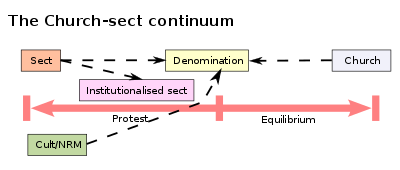Pdf Handbook Of Denominations
Books.google.de - The Handbook of Denominations has been recognized as an accurate, objective, and comprehensive source of information on denominational groupings in the United States for over half a century. This new edition has been thoroughly revised and updated. However, it maintains the accessibility and readability.


Handbook of Denominations in the United States. The Handbook of Denominations has been recognized as an accurate, objective, and comprehensive source of information on denominational groupings in the United States for over half a century. This new edition has been thoroughly revised and updated. However, it maintains the accessibility and readability that have been hallmarks of previous editions. The thirteenth edition presents updated entries on the major Christian denominations in the United States---their historical background, their doctrines or main teachings, and their polity or structure of governance. Included are statistics on the number of churches and church members and information about church-related schools and institutions. The Handbook also treats the major branches of Judaism and Islam that are found in the U.S.
The Handbook features a reorganized division of denominational 'families' intended to help readers find information on and understand relationships between churches more quickly. A new introduction on religion in America, lists of church membership in the main ecumenical organizations, charts depicting the historical development of denominations, a directory of denominational headquarters and Web sites, a list of suggested readings, and an index add to the usefulness of the volume. Clearly the standard in the field, the Handbook of Denominations is an essential resource for seminary students, clergy, laity, librarians, journalists, researchers, teachers---in short, for anyone seeking authoritative information on religious life in America! Mead was a renowned authority on both the historical and the contemporary church.
He served as editor of the Christian Herald, was a conusulting editor for several large publishing houses, and wrote articles for the Christian Century, Christian Herald, and Reader's Digest. Cool Edit Pro Portable Windows 7. Hill, Professor Emeritus of Religion at the University of Florida, is widely recognized as a leading authority on religion in the United States.
Should I Celebrate Christmas? By David Padfield. Around the first of November you can see billboards which tell us to 'Put Christ back into Christmas.'
Atwood earned the Ph.D. In Church History from Princeton Theological Seminary. He is the Charles D. Couch Associate Professor of Moravian Theological Seminary in Bethlehem, PA. Atwood has served on the Faith and Order Commission of the National Council of Churches in the U.S.S. And is an active member of the American Academy of Religion.
For the first thousand years of Christianity, there were no denominations within Christianity as there are today. Various offshoot groups certainly existed, but most were small and quickly snuffed out as 'heresies.' The first major division within Christendom came in 1054, with the Great Schism between the Western Church and the Eastern Church. From that point forward, there were two large branches of Christianity, which came to be known as the (in the West) and the (in the East). The next major division was the Protestant Reformation, sparked in 1517 by Martin Luther's publication of 95 Theses against certain Catholic practices. By 1529, German princes were demanding the right to choose between and Catholicism in their territories. (These demands were published in a document titled Protestation, giving the movement its name.) Meanwhile, 'Reformed' Christianity developed in Switzerland based on the teachings of Ulrich Zwingli and John Calvin.
When it spread to Scotland under John Knox, the Reformed faith became. Switzerland was also the birthplace of the Anabaptists, spiritual ancestors of today's, Mennonites,, and Baptists.
Was established in 1534 when England's King Henry VIII broke from the authority of the Pope. Anglicanism is often regarded as a 'Middle Way' between Catholicism and Protestantism, while others categorize it as Protestant. Anglicanism became Episcopalianism in the United States.
Methodism, based on the teachings of John Wesley, also has its roots in Anglicanism. Those who remained within the fold of Roman Catholicism during the Reformation argued that central regulation of doctrine is necessary to prevent confusion and division within the church and corruption of beliefs. Protestants, on the other hand, insisted that it was precisely this policy of control that had already led to corruption of the true faith. They demanded that believers be allowed to read the Scriptures for themselves (it was previously available only in Latin) and act in accordance with their conscience. This issue of religious authority continues to be a fundamental difference in perspective between Catholic and Orthodox Christians on one hand, and Protestant Christians on the other. With its emphasis on individual interpretation of scripture and a measure of religious freedom, the Reformation marked not only a break between Protestantism and Catholicism, but the beginning of Christian denominationalism and sectarianism as we know it today.
And perhaps not surprisingly, some of the most interesting developments in Christianity have occurred in the United States, where individual freedom in all things is intensely valued. Christian Science, Mormonism, and the Jehovah's Witnesses are just a few of the major religious movements that have developed in this context. Today, Christianity encompasses an astounding variety of denominations, sects, and churches.
Relationships between these groups range from mutual respect and cooperation to denial that the other group is really 'Christian.' Many Christian groups would also refuse the label of 'Christian denomination,' considering themselves the only true form of Christianity, not one among many. Free Capture Software For Mac. At ReligionFacts, we simply list any group that self-identifies as Christian and/or is based significantly on the life or teachings of Jesus under the broad category of 'Christianity.'